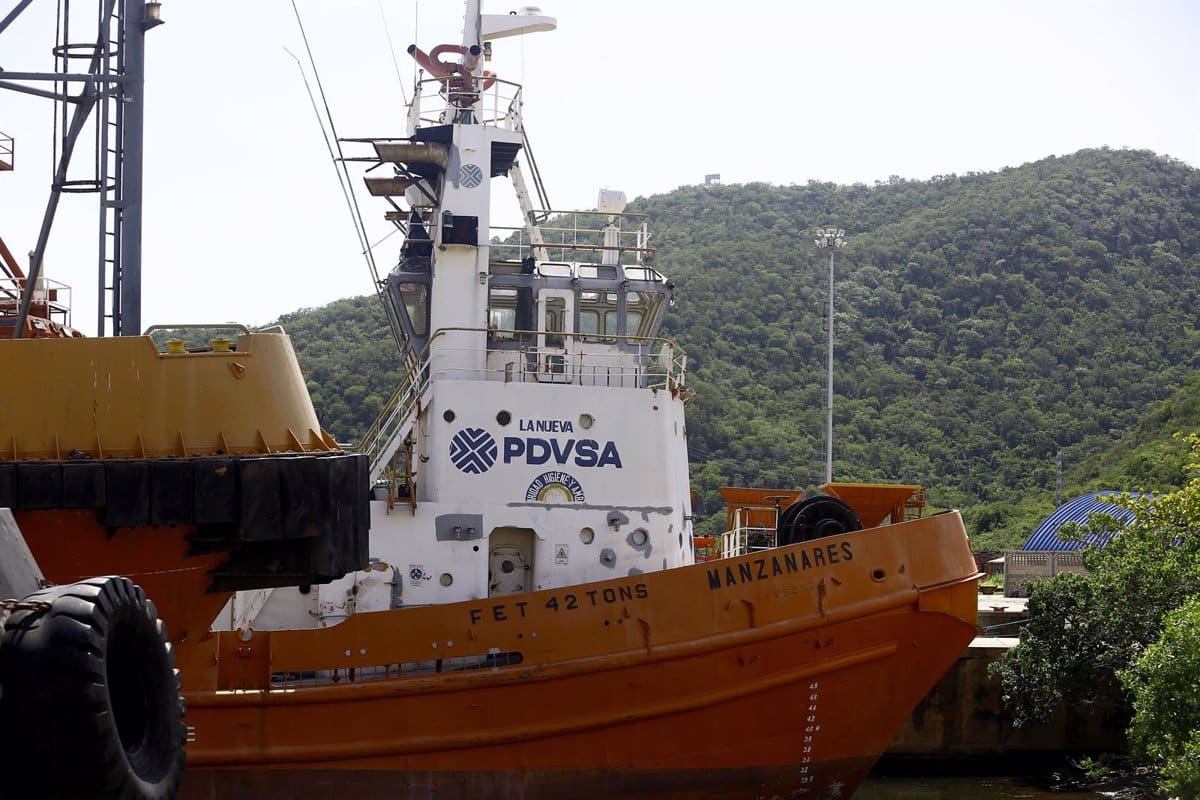
PDVSA oil tanker Manzanares docked in Puerto Cabello, Carabobo state, Venezuela. Photo: Juan Carlos Hernández/Zuma Press/File photo.

Orinoco Tribune – News and opinion pieces about Venezuela and beyond
From Venezuela and made by Venezuelan Chavistas

PDVSA oil tanker Manzanares docked in Puerto Cabello, Carabobo state, Venezuela. Photo: Juan Carlos Hernández/Zuma Press/File photo.
On Friday, December 30, US news agencies reported that the multinational oil company Chevron Corp sent an oil tanker to Venezuela to load the first shipment of crude from the country bound for the United States, after almost four years of no operations, following the unilateral blockade imposed on Venezuela by the White House.
Agencies cited “a person familiar with the matter” who provided the information with “location data” of the ship approaching Venezuelan waters.
That same unidentified source said that “another tanker will arrive at the beginning of January” and it will carry a shipment of diluents to a joint venture between Chevron and the Venezuelan state-owned Petróleos de Venezuela (PDVSA) for the processing of heavy crude.
Washington Greenlights Chevron to Resume Oil Production in Venezuela, Uses Mexico Talks as Excuse
Easing of blockade or desperation of the US
This shipment is the first one under the license issued in November by the US Treasury Department. It was an executive order from Washington that relaxes very slightly the illegal sanctions imposed by the US government over years in order to force “regime change” in Venezuela.
This blockade was accompanied by measures of extreme pressure that included the attempt to impose a parallel government with Juan Guaidó at the helm; armed invasion attempts; sanctions, attacks and sabotage against the Venezuelan economy; seizure and freezing of Venezuelan assets abroad; violent armed uprisings in the streets known as guarimbas, which cost the lives of Venezuelans; and induced hyperinflation and other macroeconomic and social distortions that impoverished the country. Despite everything, in 2022, Venezuela achieved economic growth and social peace that are evidence of the failure of the US-backed coup attempts.
On the other hand, the US, like the rest of its allies, is going through a situation of fuel shortages, rising oil and gas prices and inflation, as a result of the blockade they are now imposing on Russian energy companies in the context of the war in Ukraine.
PDVSA and Chevron Sign Contracts for Oil Production in Venezuela
OFAC license
At the end of November, after the signing of the Second Partial Agreement for the Protection of the Venezuelan People by the Delegation of the Venezuelan government and the most radical sector of the Venezuelan opposition in Mexico, the US government issued almost immediately an expanded OFAC license 41 that allows Chevron Corp to import oil or petroleum products from its joint ventures in Venezuela.
License 41 would allow the “production and extraction of petroleum or petroleum products produced by Chevron JVs, and any related maintenance, repair, or service of Chevron JVs,” declared the OFAC statement.
The license also allows the “sale, export, or import into the US of oil or petroleum products produced by Chevron JVs, provided that the oil and petroleum products produced by Chevron joint ventures are first sold to Chevron” and the “purchase and import into Venezuela of goods or inputs related to the activities” of Chevron’s oil business “including diluents, condensates, oil or natural gas products.”
On December 2, PDVSA signed contracts with Chevron. It was announced that the contracts would strengthen the Venezuelan industry and promote the development of join ventures in Venezuela. The signing of the contracts took place at the PDVSA headquarters in La Campiña, Caracas. The signatories were PDVSA President Asdrubal Chávez and Petroleum Minister Tareck El Aissami from the Venezuelan side, and the president of Chevron for Venezuela, Javier La Rosa.
El Aissami explained that the contracts “have the aim of continuing oil activity in the country” and highlighted the recovery of the Venezuelan oil industry despite the blockade in recent years.
(Últimas Noticias) by Victor Castellanos
Translation: Orinoco Tribune
OT/JRE/SC